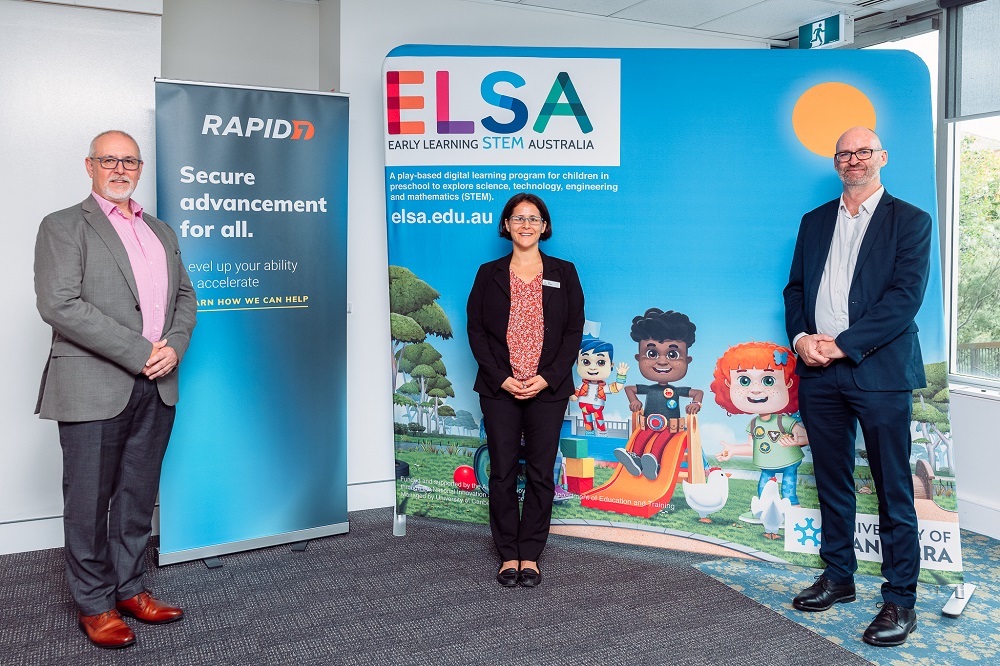“It was honestly night and day with what we saw from UC compared to the rest of the market, so it was a very easy choice for us.” —Peter Owen, Rapid7
The University of Canberra’s Early Learning STEM Australia (ELSA) program will extend its groundbreaking digital education initiative into kindergarten classrooms across Canberra and surrounding NSW regions, thanks to a donation from International IT security, data and analytics-software organisation, Rapid7.
The $USD100,000 donation was announced at the University’s Bruce campus on 12 March 2021, as part of the ‘Rapid7GivesBack’ initiative.
ELSA, a project of the STEM Education Research Centre (SERC) under the Faculty of Education, is designed to engage young learners in Science, Technology, Engineering and Mathematics through play-based methods.
Director of ELSA, Centenary Professor Thomas Lowrie, said the donation from Rapid7 had facilitated the beginning of the program’s expansion, which previously ran only in preschools.
“The support from Rapid7 enabled us to pilot ELSA in kindergarten classes in communities across different locations,” he said.
“Despite a year where many children did not physically attend school for periods of time due to COVID-19, we saw large gains in spatial skills and a transfer to numeracy achievement over the 18-week program.”

While Rapid7’s core business uses comprehensive real-time data collection, advanced correlation, and unique insight into attacker techniques to strengthen an enterprise’s ability to defend against cyber-attack, its core values extend to the philanthropic endeavours in the form of Rapid7GivesBack.
Rapid7 Sales Director Australia and New Zealand, Peter Owen, said the company was pleased to have found ELSA and the work it’s doing towards STEM achievement.
“We wanted to find an organisation we could partner with and sponsor. We looked across the country and the University of Canberra stood out head and shoulders above everybody,” he said.
“It was honestly night and day with what we saw from UC compared to the rest of the market, so it was a very easy choice for us.”
The ELSA program includes AFR Award-nominated and exclusively designed apps for learners to direct their own play while building capacity in spatial and logical reasoning in STEM. The apps then collect children’s STEM literacy data in a play-based way, on a scale not seen before in technology research.
Since its inception in 2018, more than 11,000 children across remote indigenous communities, regional towns and urban areas have taken part in ELSA, providing equal opportunity for Australian children to access the pedagogically rich and technologically innovative program.
“Through this funding, we were able to develop the program and examine how we could address the cultural and contextual needs of children and teachers in both very large schools and in small schools with multi-age classrooms to determine how ELSA could work effectively in a broad range of contexts,” said Centenary Professor Lowrie.
Article written by Danielle Meddemmen. Reproduced with permission. You can read the original article on the University of Canberra website.
